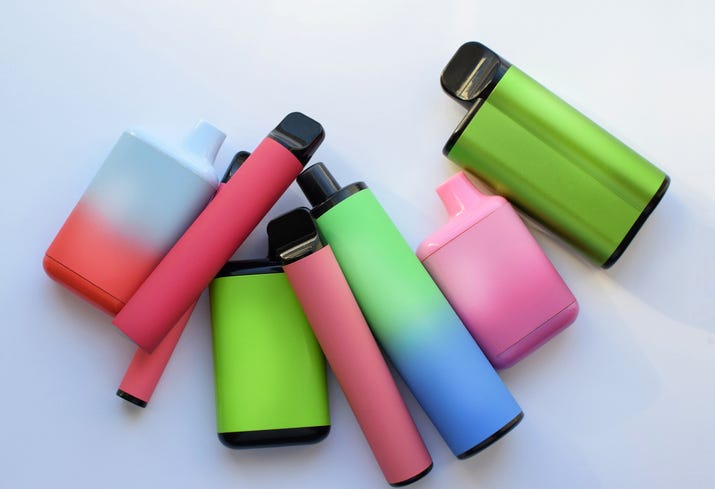
SAN FRANCISCO (KCBS RADIO) – More than 2.1 million American middle and high school students said that they used vapes last year. Next year, the U.S. Supreme Court is expected to rule on a case about these products, which have been linked to negative health outcomes.
For more, stream KCBS Radio now.
Vapes, or e-cigarettes, are similar to traditional cigarettes but they do not require lighting tobacco on fire. Instead, users inhale aerosols created by the battery-powered devices that heat liquids often containing nicotine.
“We’re really concerned about youth vaping for a few reasons,” said Dr. Pamela Ling director of the UCSF Center for Tobacco Control Research and Education, in an interview with “As Prescribed” from KCBS Radio. “One is that after vapes were introduced by 2018, we had a huge rise in the numbers of young people vaping. And even though those numbers have now come down somewhat, vapes are by far the most common tobacco product used by young people, far more than cigarettes.”
Out of the American middle and high schoolers who said they vaped in 2023, 90% said they used flavored vapes. The upcoming Supreme Court case will cover the U.S. Food and Drug Administration’s denial of flavored vaping products.
“Vapes are available in thousands of flavors and at least 80% of young people start with the flavored product, vapes are really enticing for young people to get started, even if they don't intend to become addicted to the product,” Ling explained.
Young Americans aren’t the only group that uses vapes. Per estimates of annual National Health Interview Survey data, 6% of U.S. adults aged 18 and over used e-cigarettes in 2022 compared with 3.7% in 2020. Another study found that e-cigarette unit sales jumped by more than 46% between January 2020 and December 2022 — an increase from 15.5 million products per month to 22.7 million.
While some might be under the impression that vaping is healthier than traditional cigarettes, Ling said that is not necessarily the case.
“It’s difficult to say what the effects of vaping are on human health because it takes so long for things like lung cancer to develop. It would take us 20 years to know about that specific health effect,” she said. “What we do know is that when you look at studies of exposure to toxicants, especially tobacco toxicants related to tobacco products, e-cigarettes expose users to lower levels of those toxicants. However, we also have observational studies that look at people who’ve used e-cigarettes and their rates of respiratory disease or cardiovascular disease. And those studies show that respiratory disease does seem to be lower among people who are vaping, but cardiovascular disease seems to be about the same.”
Listen to this week's "As Prescribed" to learn more. You can also listen to last week's episode about health disparities, here.
DOWNLOAD the Audacy App
SIGN UP and follow KCBS Radio
Facebook | Twitter | Instagram
“As Prescribed” is sponsored by UCSF.
